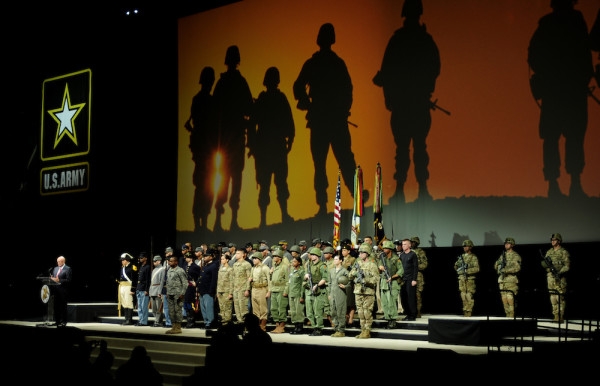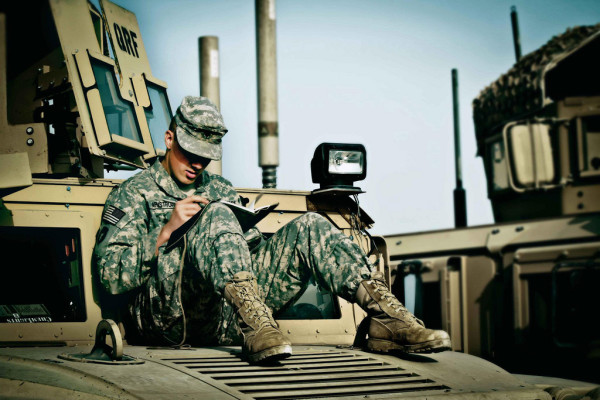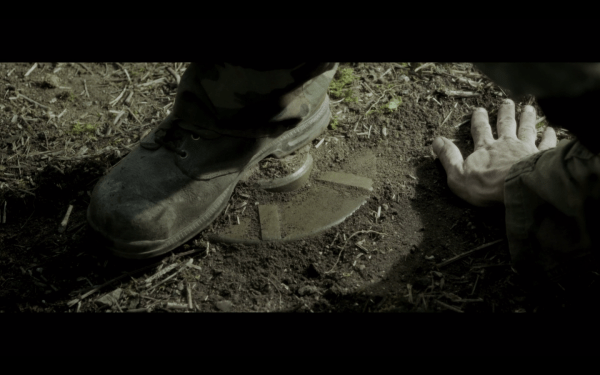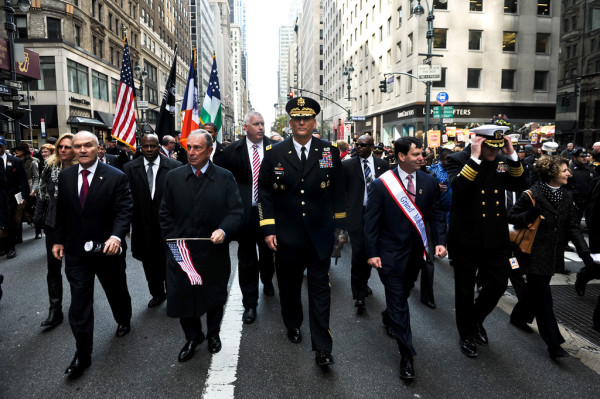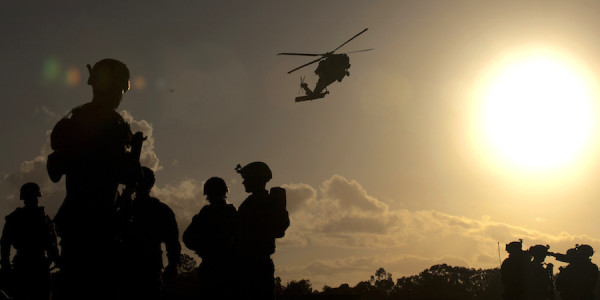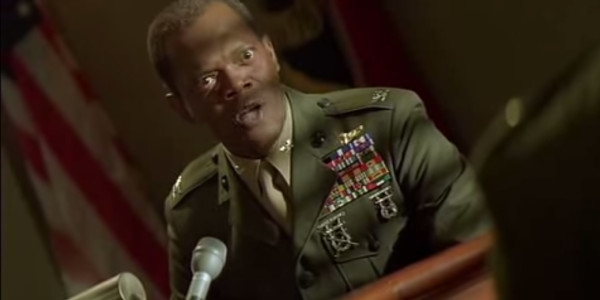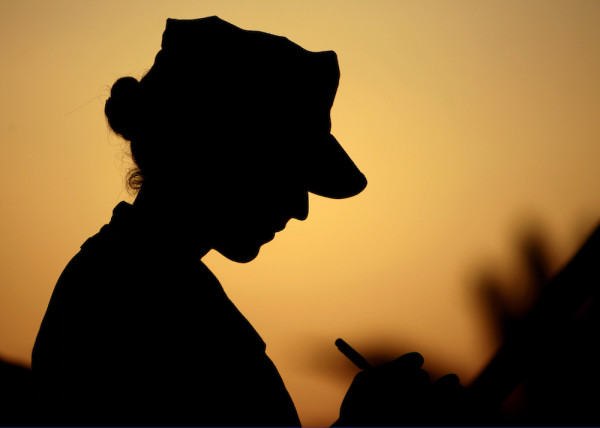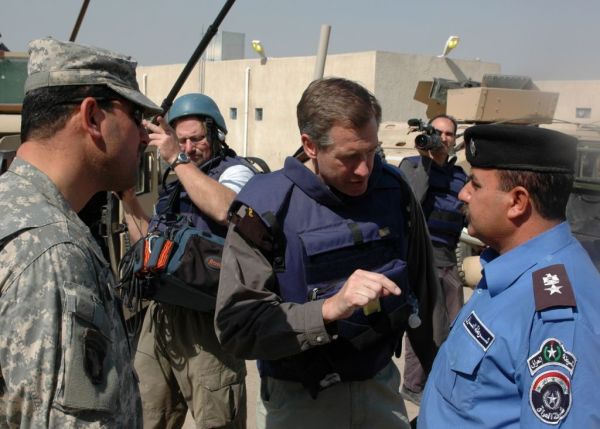As we retreat from over a decade of war, the proliferation of war-themed novels and short stories are coming to the forefront, many of them written by veterans. Such authors empower veterans to reclaim the narrative that previously has been mostly controlled by civilians and journalists throughout the conflicts in Iraq and Afghanistan. These personalized, fictional accounts are important as we draw down from the Middle East, because the narrative is already shifting. Whereas veterans were once cast as heroes defending freedom and democracy, now they are pegged as victims ravaged by unpopular wars in hostile and misunderstood environments.
On Memorial Day, Phil Klay, a Marine veteran who recently released his debut short story collection “Redeployment,” wrote an op-ed describing the pity he receives from strangers due to his veteran status, as if all veterans’ experiences are not only similar, but also crippling. Although many veterans’ stories deal with moral struggles in combat, as well as trouble readjusting to civilian life, they more often than not depict these struggles in a measured tone, rather than in the character of a blood-thirsty veteran constantly on the verge of violently snapping, another stereotype played out in the media lately. Many people assume veterans were tricked into going to war and left damaged by it, and fail to understand not only the varying motives for joining the armed forces, but also the range of experiences overseas.
In his short story, “Ten Kliks South,” Klay tackles the notion of collective responsibility for warfare in a war that less than 1% of the American population served in. Darkly humorous — a trademark of combat arms soldiers and Marines — the story follows a conversation between artillerymen let down by their first, anticlimactic fire mission, in which they don’t quite know the end result of their shells’ impact. Divvying up hypothetical kills among the nine crew members, the Marines soon begin to dilute their personal responsibility. They joke about how the Marines at the ammo supply point should share the burden, to which one sergeant sarcastically responds, “Why not the factory workers who made the ammo … or the taxpayers who paid for it?” In the end, the narrator feels conflicted about what he expected from combat:
Jewett gives a little shrug. “I don’t know,” he says. “I still don’t feel like I killed anybody.”
And as dumb as Jewett’s being, it dawns on me that I don’t either. I look around the table. Jewett’s fucking it up for everybody. And he’s fucking it up for me too. So I turn to him. “It’s supposed to feel good.” I say. “It feels good.”
For many civilians, time in the military, especially overseas, is reduced to their preconceived notions of what combat is. They don’t consider the camaraderie, the downtime spent bored, the dark humor. While Klay captures those emotions in his collection of short stories, Iraq War veteran Brian Van Reet highlights the civil-military divide itself in his short story, “The Window.” In it, he follows a soldier between deployments road tripping with his fiancée. At a restaurant, they overhear a man and woman dismissively talking about the woman’s brother joining the Marines. The soldier, Staff Sergeant Fitzpatrick, and his fiancée later see the couple at the motel and drink with them. Fitzpatrick senses the inevitable direction the conversation is heading, spurred by the woman:
“Do you mind if I ask you a personal question?”
Fitzpatrick said no, drawing the word out in polite cautiousness, beginning to guess what might be coming. He experienced a twinge of déjà vu; something like this had happened several times before, but never with such a casual acquaintance. Blame the booze. He crunched an ice cube between his teeth and resigned himself to being a natural curiosity.
“Did you ever, you know… kill anyone?” she said. “Over there.”
Fitzpatrick’s fiancée chides him for not only answering the woman, but telling this stranger something the fiancée didn’t know. She never asked, he said. This dialogue represents not only the disconnect between a veteran and the stranger — who asks the one question that always seems to be the first question civilians ask or are at least thinking — but also between the veteran and his fiancée, who knew as little about her fiancée’s experience as this stranger.
These emerging veteran authors, and many others who follow, will help form a well-rounded portrayal of active-duty service members and veterans for those outside of the military community. Veterans should no longer be reduced to stereotypes, nor should they only be represented by voices not their own. As Klay wrote in his Memorial Day op-ed: “War subjects some of its participants to more than any person can bear, and it destroys them. War makes others stronger. For most of us, it leaves a complex legacy.”
Ramiro G. Hinojosa, a political research analyst in Austin, Texas, served in Iraq from 2006-07 with the 82nd Airborne Division. He is a member of the Truman National Security Project’s Defense Council. His nonfiction writing has appeared online at Tin House’s The Open Bar, Guernica Daily, and Stars & Stripes.

